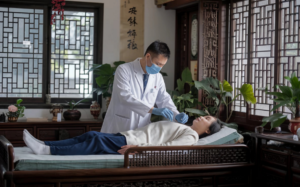
When you take up discussing your different relationships with the people around you , probably none of you are thinking about your general physician. This relationship, however, is one of the most vital ones in your life. In sickness and in health, a general physician from icareheal is there for you through it all and the better you interact with each other, the better care your doctor can provide for you. But how do you build a rapport with your doctor or even interact with a general physician for that matter? We got you covered.
Be honest about your health always:
As with all relationships, communication between you and your general physician needs to be a two-way or mutual communication. The more you take your doctor’s appointments seriously & share your issues properly, the more you’ll get out of them. Your general physician isn’t supposed to know what your life is like outside of their office or if you consume a high protein diet or not . You have to communicate openly and honestly about your health, your diet and your lifestyle with your general physician and there’s no shortcuts for this. While it can be a tad bit intimidating and even hesitant to openly discuss your health issues it’s significant to take up and address even the most intimate health problems. Never forget that your general physician won’t judge you, be shocked or offended by even your most embarrassing symptoms or problems.
If you have a hard time interacting with your general physician then you can as well write down your issues and problems and rehearse them a bit before meeting him or her. You must make sure that you note down all that is bothering you at the moment and share it all with the general physician.
Four tips for building a better relationship with your general physician and share the required information without any hesitation:
- Participate in your checkup & care:
All relationships require active participation to develop, which can go beyond sharing your symptoms and concerns.
Your general physician wants to be a collaborator in your care routine and look out the best options and prescribe the most suitable one for you. You must always give away your full medical history to your general physician and let him know every detail and your choices so that he or she can better understand your body and its functionalities.
- Always follow your general physician’s advice
It’s not always easy to follow any advice, especially when that advice is about changing a facet of your lifestyle or diet. Your general physician’s advice, although, is curated to help work on your health, and in some situations, cancel out symptoms to see if there are other subsiding health situations. You may come across conflicting advice coming from friends, family or even the Internet for that matter. But always know that your general physician has the medical expertise and detailed report on your health history to give you the best recommendations for how to improve your health.
- Take your medicines timely:
Prescribed medications are only helpful if you consume these medicines on time. Many medications to manage short-term or chronic conditions need to be consumed at certain regular intervals for them to have the maximum recovery effect on you. If it’s difficult to remember to take medication all the time we know, but try setting an alarm or a reminder on your calendar to take them. If you avoid taking medication or forget them because it’s complicated to consume or because of the side effects, talk to your doctor to see if there are any other choices.
- Be generous:
You may not feel the most friendly or polite when you’re unwell, but generosity and courtesy does go a long way toward building a better relationship with your general physician. Effective politeness and communication with your general physician can help you solve your problems away easily and understand your complications better. This opens doors and windows ahead for further opportunities and better treatment.
- Consider bringing someone along with you to the appointment:
Sometimes it is easier to bring a family member or close friend with you. Let your family member or friend know in advance what you expect from your visit to the general physician’s. Your companion can help you recall what you planned to discuss with the general physician if you forget. She or he can take notes for you and can help you remember what the general physician said.
Don’t let your companion take too strong a role. The visit is between you and the general physician. You may want some time alone with the general physician to discuss personal matters. If you are alone with the general physician during or right after the checkup, this might be a good time to raise private concerns. Or, you could ask your family member or friend to stay in the waiting room for part of the appointment. For the best results, let your companion know in advance how he or she can be most helpful.






